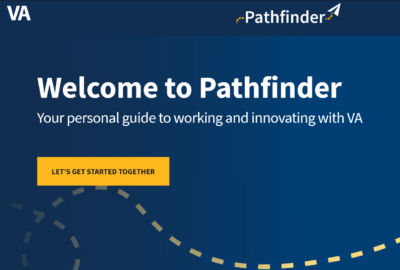
Agencies to start implementing transparency law for Congressional reports in October
New OMB guidance tells agencies how to implement the new Access to Congressionally Mandated Reports Act, which requires most reports to Congress to be made publ...
Starting in October, many federal agency reports that until now have only been accessible to members of Congress will also be available to the public.
The Office of Management and Budget issued detailed guidance and timelines Wednesday telling agencies how to implement the Access to Congressionally Mandated Reports Act, which Congress passed in December. Starting on Oct.16, anytime an agency is drafting a legally-required report to Congress, they’ll also need to prepare to send it to the Government Publishing Office to be hosted in a new publicly-accessible web portal GPO is building.
There are some very large exceptions, however. Under the law, and the new OMB guidance, agencies won’t have to publicly reveal any report that’s destined for the House or Senate appropriations, armed services or intelligence committees. Nothing in the OMB guidance or the law would prevent agencies from adding those reports to the portal voluntarily, however.
Intelligence community agencies are also completely exempt from the law, as are any agency’s reports on IT security and “law enforcement sensitive” matters. And agencies will still have some discretion to keep reports out of the GPO portal, particularly if they contain sensitive personal information.
“Generally, agencies shall not construe the Act as requiring them to disclose information, records, or reports that are exempt from public disclosure under [the Privacy Act],” OMB director Shalanda Young and GPO director Hugh Halpern wrote in Wednesday’s memo. “Agencies are responsible for reviewing their congressionally mandated reports prior to submission for publication to the GPO submission portal for the purposes of identifying and redacting information or records. There is no affirmative duty on GPO to review reports for these purposes prior to publication.”
The new guidance tells all federal agencies they’ll need to appoint a specific point of content to ensure their reports are being uploaded to GPO. They’ll need to register for accounts on GPO’s new reports portal starting Oct. 1. Under the law, reports will need to be submitted to the portal 30 days after they’re sent to Congress — but no more than 60 days after they’re sent to Congress.
The OMB directive also emphasizes accessibility and discoverability: each document will have to use open data standards, have searchable text, and specific metadata describing the report and the specific law that requires it. GPO said it would reject any documents that come in a proprietary format, are platform dependent or aren’t searchable.
Congress passed the Access to Congressionally Mandated Reports Act (ACMRA) as part of the 2023 defense authorization bill — a significant victory for government transparency groups, who had been urging the legislation’s passage for more than a decade.
Advocates have argued that creating a centralized database of all legally-mandated reports would not only improve public understanding of agency activities, but also make the reports more accessible to members of Congress themselves.
“Additionally, for the first time we will have a comprehensive list of all executive branch reports the law requires be submitted to Congress,” a coalition of 29 good government groups wrote in a 2021 letter to then-House Speaker Nancy Pelosi urging the law’s passage. “This will let us know what reports are due and tell us whether an agency has complied with its obligation to submit reports in a timely fashion.”
As of now, it’s impossible to say how many reports to Congress are required by federal law, let alone whether agencies are complying with those reporting requirements, or if anyone on Capitol Hill is reading them.
That’s partly because the legal provisions that mandate the reports are scattered throughout various sections of federal statute and appropriations law, making them difficult for even Congressional staff to count.
The Clerk of the House maintains a partial list. And the Congressional Research Service attempted to count the total as part of a 2020 study that conducted a comprehensive search of public laws. CRS discovered 3,359 reporting requirements in the 115th Congress alone, but noted that even that figure is almost certainly a significant undercount.
“Reports to Congress might arise from several sources. These include statutory reporting requirements; House, Senate, and conference committee report language; and interactions between Members of Congress and agency officials,” according to the 2020 report. “The diversity of sources of reporting requirements means that any accounting of requirements based on a single source (such as public laws) will necessarily be incomplete.”
A separate 2022 study by the Congressional Budget Office found that ACMRA and the new public portal would cost very little to implement, mainly because — at least in theory — all of the reports that will be housed in the portal are already being prepared for Congress. CBO estimated the total cost of implementation, governmentwide, would be $400,000 per year.
Copyright © 2024 Federal News Network. All rights reserved. This website is not intended for users located within the European Economic Area.
Jared Serbu is deputy editor of Federal News Network and reports on the Defense Department’s contracting, legislative, workforce and IT issues.
Follow @jserbuWFED
Related Stories





